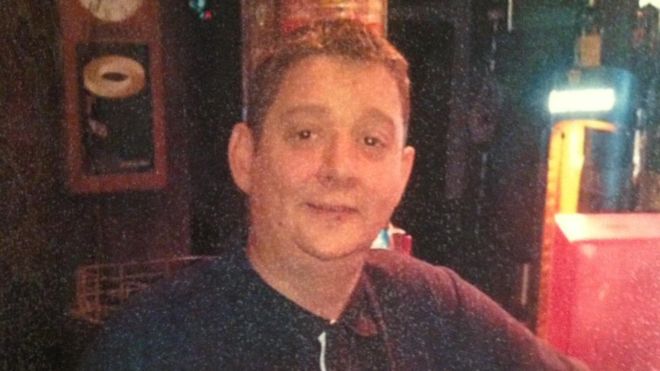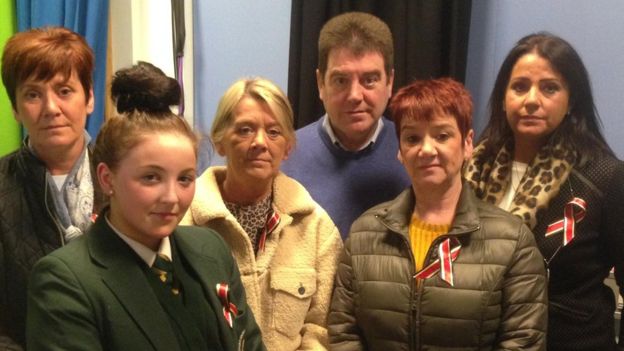
Seamus Conway could have been a professional snooker player,says his sister Christina
Father-of-one Seamus Conway was given the infected blood products when he was 11-years-old and later died after developing liver cancer.
The 45-year-old died in May, six months after his diagnosis.
The government apologised for the infected blood scandal last month.
Its legal team said it was clear “things happened that should not have happened”.
The inquiry is currently looking at how NHS patients were given infected blood products during the 1970s and 1980s.
It has been called the worst-ever NHS treatment disaster.
Mr Conway was born with haemophilia, which affects the blood’s ability to clot.
Mr Conway’s sister Christina McLaughlin travelled to the opening of the public inquiry in London last week and the family will give evidence in the coming months.
Speaking to BBC Radio Foyle, Christina said: “Seamus was adored by us all,” Ms McLaughlin told BBC Radio Foyle.
“He was an excellent snooker play. He could’ve been a world champion.
“We were devastated what happened him. He might still be here today if we were able to look after him.”
Christina said she finds it difficult to live with the loss of her brother.
“You live with regrets,” she added.
“The government didn’t word their apology the way I would have wanted. I have no trust left in the NHS. I need that trust back because my son is also haemophiliac.”

Seamus’ brother and sisters pictured with his 16-year-old daughter Jennifer. Pic BBC Radio Foyle
“They are expecting us to gain back their trust by saying sorry. I don’t think I can accept their apology.
“The pain is always going to be there. There’s nothing that will take that away.”
There have been previous inquiries into the scandal, but this is the first UK-wide public inquiry that can compel witnesses to testify.
It comes after decades of campaigning by victims, who claim the risks were never explained and that the scandal was subsequently covered up.
About 5,000 people with haemophilia and other bleeding disorders are believed to have been infected with HIV and hepatitis viruses over a period of more than 20 years – about 2,500 of them have since died.
They were injected with blood products used to help their blood clot.
But because the UK was struggling to keep up with demand for the treatment it imported supplies from the US.
Some of the human blood plasma used to make the product came from donors such as prison inmates, who sold their blood.
Tags:




